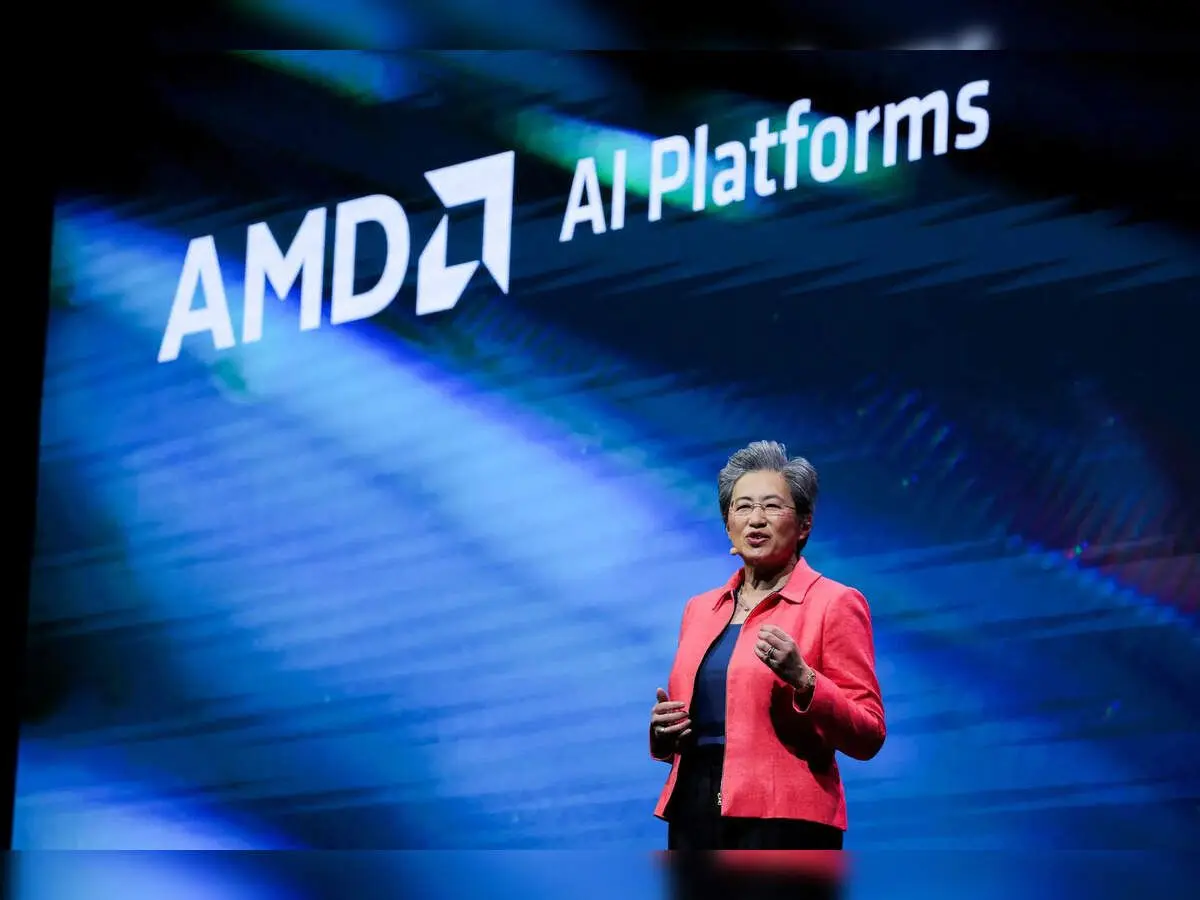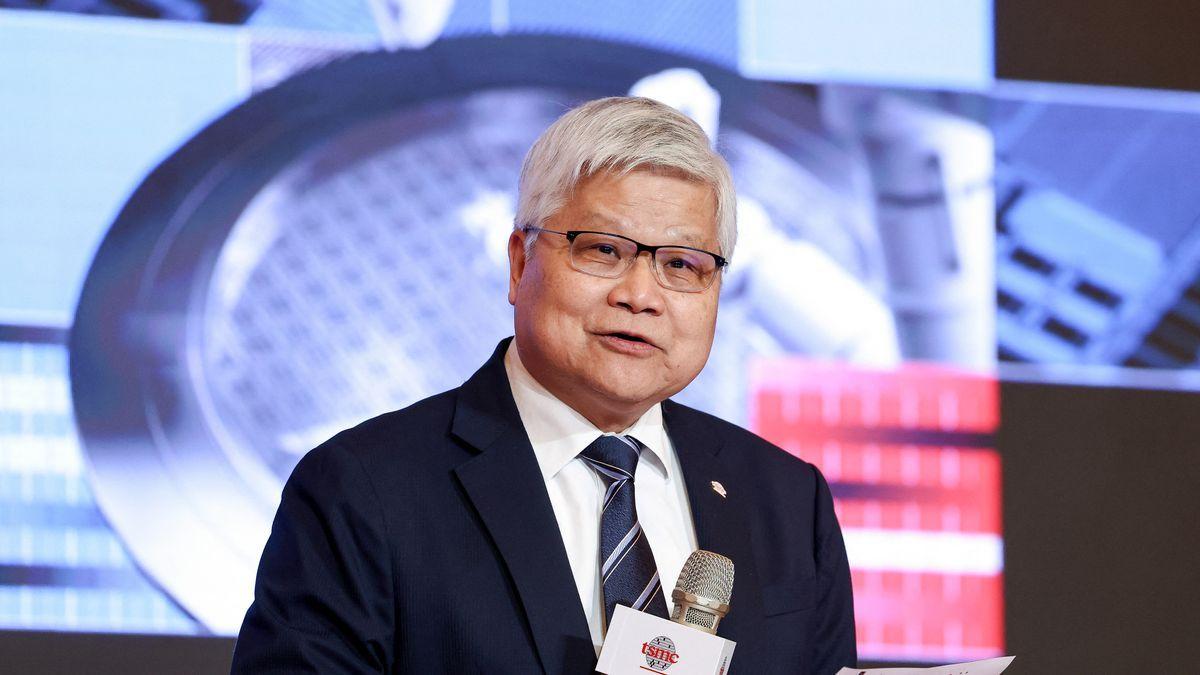AMD Gears Up for US Chip Production Amid Rising Demand and TSMC Price Hikes
2 Sources
2 Sources
[1]
AMD CEO says ready to start chip production in Arizona, to make more AI servers in US
TAIPEI, April 15 (Reuters) - Advanced Micro Devices' (AMD.O), opens new tab Chief Executive Lisa Su said on Tuesday that it is ready to start chip production at its Arizona plant and will certainly make more AI servers in the U.S. Su was speaking to reporters at National Taiwan University in Taipei. U.S. President Donald Trump said on Sunday he would be announcing the tariff rate on imported semiconductors this week, adding that there would be flexibility with some companies in the sector. AMD, one of the largest providers of personal computer chips, relies mostly on TSMC (2330.TW), opens new tab, the world's largest contract chip maker in Taiwan to make its chips. Reporting by Wen-Yee Lee in Taipei; Editing by Jacqueline Wong Our Standards: The Thomson Reuters Trust Principles., opens new tab Suggested Topics:Artificial Intelligence
[2]
AMD's Lisa Su Breaks Silence on US Chip Strategy as TSMC Hikes Pricing
AMD CEO Lisa Su (in image) has confirmed the chipmaker is ready to begin production at TSMC Arizona facility, as demand surges in the U.S. | Credit: Jerod Harris / Stringer Advanced Micro Devices (AMD) CEO Lisa Su has confirmed the U.S. chipmaker is ready to begin production at Taiwan Semiconductor Manufacturing Company's (TSMC) Arizona facility. The announcement follows a surge in demand from tech giants like Apple and Nvidia, spurred by the Trump administration's sweeping tariffs on overseas chip production. This sudden increased demand for the plant has pushed TSMC to hike its prices -- raising questions over the potential rivalry between AMD and Nvidia. AMD Moves Ahead With TSMC Speaking outside the National Taiwan University in Taipei on Tuesday, April 15, Su stated that AMD is prepared to commence manufacturing at TSMC's U.S. plant. "When you think about the importance of the supply chain, we need to have a presence everywhere," Su said . "Taiwan is critically important to us, but so is the United States." Su also revealed that AMD plans to boost its AI server capabilities in the U.S. following its recent $4.9 billion acquisition of server manufacturer ZT Systems. As one of the world's largest providers of personal computer processors, AMD relies heavily on TSMC to fabricate its chips. Tariffs Drive Domestic Demand The rise in domestic chip orders is a direct result of former President Donald Trump's tough export tariffs. These tariffs have pressured tech companies, who previously saw sourcing chips in the U.S. as a slower and more expensive route, have been forced to shift their chip sourcing to domestic facilities to avoid additional costs, according to a report by DigiTimes . TSMC has responded to the influx of orders by raising the price of its 4nm chip production in the U.S. by 30%, citing the sudden imbalance between supply and demand. The plant, which currently produces between 20,000 and 30,000 units monthly, is reportedly struggling to meet the spike in demand, which could lead to potential supply chain disruptions. AMD vs. Nvidia: A Renewed Rivalry Under Su's leadership, AMD has transformed dramatically -- growing from a near-bankrupt company valued at $2 billion in 2014 to a $172 billion tech powerhouse. AMD surpassed Intel in market value in 2022 and now has its sights set on its primary competitor, Nvidia. Despite its success with processors for Microsoft's Xbox and Sony's PlayStation, AMD still trails Nvidia in the booming AI chip market. In an effort to catch up, Su pivoted AMD's manufacturing strategy to use "chiplets" -- smaller, modular chip components that are later assembled into a complete chip. This approach has enhanced production flexibility and allowed AMD to use multiple foundries for different parts of the chip. However, both AMD and Nvidia depend on TSMC for their chip fabrication, meaning the Arizona facility has become the new battleground. With Nvidia's $3 trillion market valuation and larger financial cushion, it may be better positioned to absorb TSMC's price hikes and secure favorable production slots.
Share
Share
Copy Link
AMD CEO Lisa Su announces readiness to start chip production in Arizona, highlighting the company's strategy to boost AI server capabilities in the US amidst increasing demand and TSMC's price hikes.

AMD Prepares for US Chip Production
Advanced Micro Devices (AMD) CEO Lisa Su has announced that the company is ready to commence chip production at Taiwan Semiconductor Manufacturing Company's (TSMC) Arizona facility. Speaking to reporters at National Taiwan University in Taipei, Su emphasized the importance of having a presence in both Taiwan and the United States for supply chain resilience
1
.Shifting Landscape in Chip Manufacturing
The move comes amid a surge in demand for domestic chip production, largely driven by the Trump administration's tariffs on overseas chip manufacturing. This shift has prompted tech giants like Apple and Nvidia to increase their orders from US-based facilities
2
.TSMC's Response to Increased Demand
In response to the sudden influx of orders, TSMC has raised the price of its 4nm chip production in the US by 30%. The Arizona plant, which currently produces between 20,000 and 30,000 units monthly, is reportedly struggling to meet the spike in demand, potentially leading to supply chain disruptions
2
.AMD's Strategic Moves
Su also revealed AMD's plans to boost its AI server capabilities in the US, following its recent $4.9 billion acquisition of server manufacturer ZT Systems. This move aligns with AMD's broader strategy to compete in the booming AI chip market, where it currently trails behind Nvidia
2
.Competitive Landscape
Under Su's leadership, AMD has experienced remarkable growth, transforming from a near-bankrupt company valued at $2 billion in 2014 to a $172 billion tech powerhouse. The company surpassed Intel in market value in 2022 and is now setting its sights on Nvidia, its primary competitor in the AI chip market
2
.Related Stories
Manufacturing Strategy
AMD has adopted a "chiplet" approach, using smaller, modular chip components that are later assembled into complete chips. This strategy enhances production flexibility and allows AMD to use multiple foundries for different parts of the chip. However, both AMD and Nvidia rely on TSMC for chip fabrication, making the Arizona facility a new battleground for production capacity
2
.Implications for the US Semiconductor Industry
The shift towards domestic chip production aligns with broader efforts to strengthen the US semiconductor industry. President Donald Trump has announced plans to reveal tariff rates on imported semiconductors, with potential flexibility for some companies in the sector
1
. This move, coupled with AMD's commitment to US-based production, could significantly impact the global semiconductor supply chain and market dynamics.References
Summarized by
Navi
Related Stories
AMD CEO Lisa Su Confirms Higher Costs for US-Made TSMC Chips, Emphasizes Supply Chain Resilience
24 Jul 2025•Business and Economy

AMD Set to Become TSMC's Second Major Customer at Arizona Fab, Boosting US AI Chip Production
08 Oct 2024•Business and Economy

AMD confirms it will pay 15% tax to resume AI chip shipments to China under Trump deal
05 Dec 2025•Business and Economy

Recent Highlights
1
Pentagon threatens to cut Anthropic's $200M contract over AI safety restrictions in military ops
Policy and Regulation

2
ByteDance's Seedance 2.0 AI video generator triggers copyright infringement battle with Hollywood
Policy and Regulation

3
OpenAI closes in on $100 billion funding round with $850 billion valuation as spending plans shift
Business and Economy





